Quotes & Sayings About Weimar Germany
Enjoy reading and share 9 famous quotes about Weimar Germany with everyone.
Top Weimar Germany Quotes
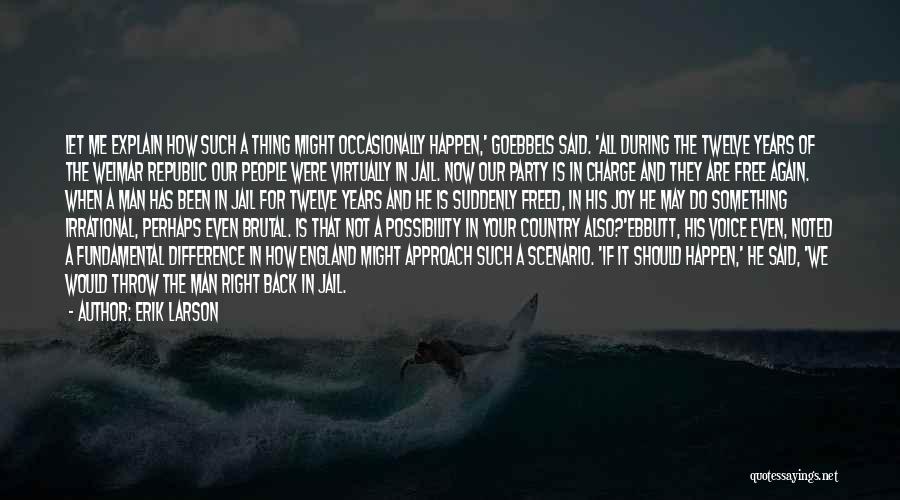
Let me explain how such a thing might occasionally happen,' Goebbels said. 'All during the twelve years of the Weimar Republic our people were virtually in jail. Now our party is in charge and they are free again. When a man has been in jail for twelve years and he is suddenly freed, in his joy he may do something irrational, perhaps even brutal. Is that not a possibility in your country also?'
Ebbutt, his voice even, noted a fundamental difference in how England might approach such a scenario. 'If it should happen,' he said, 'we would throw the man right back in jail. — Erik Larson
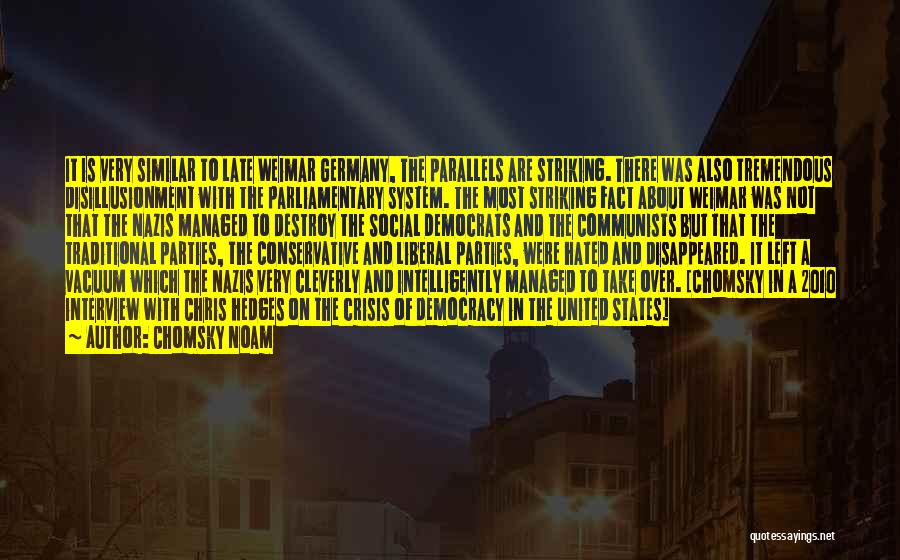
It is very similar to late Weimar Germany, The parallels are striking. There was also tremendous disillusionment with the parliamentary system. The most striking fact about Weimar was not that the Nazis managed to destroy the Social Democrats and the Communists but that the traditional parties, the Conservative and Liberal parties, were hated and disappeared. It left a vacuum which the Nazis very cleverly and intelligently managed to take over. [Chomsky in a 2010 interview with Chris Hedges on the crisis of democracy in the United States] — Chomsky Noam
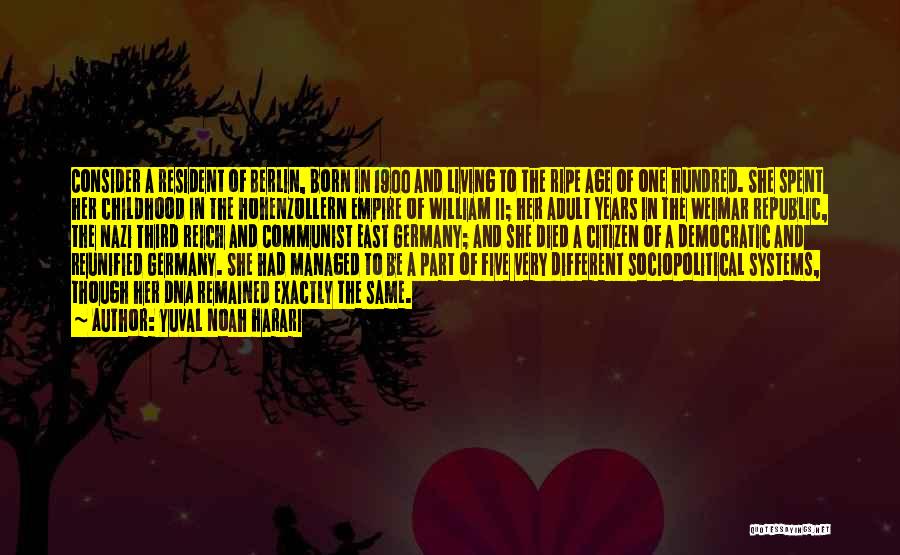
Consider a resident of Berlin, born in 1900 and living to the ripe age of one hundred. She spent her childhood in the Hohenzollern Empire of William II; her adult years in the Weimar Republic, the Nazi Third Reich and Communist East Germany; and she died a citizen of a democratic and reunified Germany. She had managed to be a part of five very different sociopolitical systems, though her DNA remained exactly the same. — Yuval Noah Harari
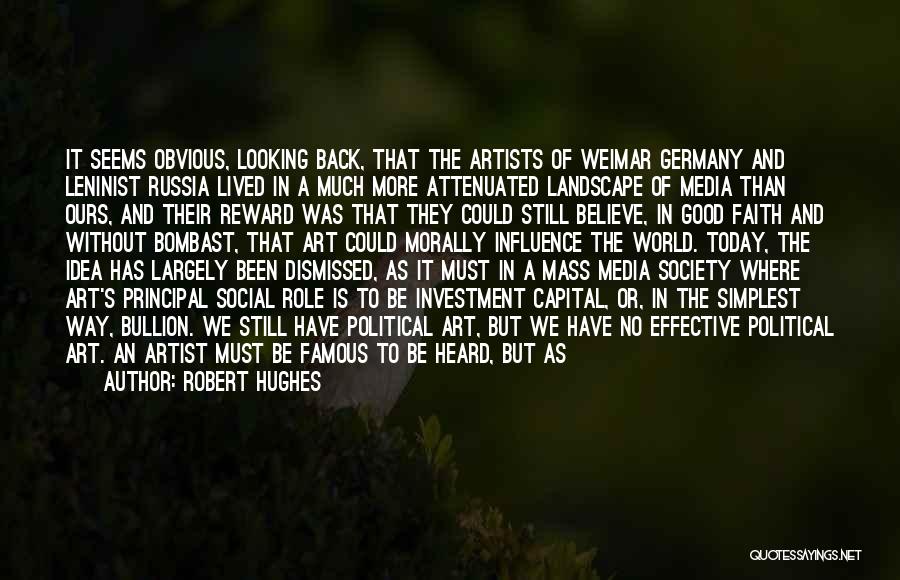
It seems obvious, looking back, that the artists of Weimar Germany and Leninist Russia lived in a much more attenuated landscape of media than ours, and their reward was that they could still believe, in good faith and without bombast, that art could morally influence the world. Today, the idea has largely been dismissed, as it must in a mass media society where art's principal social role is to be investment capital, or, in the simplest way, bullion. We still have political art, but we have no effective political art. An artist must be famous to be heard, but as he acquires fame, so his work accumulates 'value' and becomes, ipso-facto, harmless. As far as today's politics is concerned, most art aspires to the condition of Muzak. It provides the background hum for power. — Robert Hughes

[Historian] Kevin Starr has written that "the San Diego free speech battles revealed the depths of reaction possible in the threatened middle- and lower-middle classes of California." He argues that vigilantes were recruited from an anxious petty bourgeoisie, "who were uncertain and insecure in what they had gained or thought they had gained by coming to California." As in late Weimar Germany, "the oligarchy, which is to say, the upper-middle and upper classes, loathed and feared the [Industrial Workers of the World]; but oligarchs did not take to the streets as vigilantes. They did, however, encourage the lower-middle classes to do such work. — Justin Akers Chacon
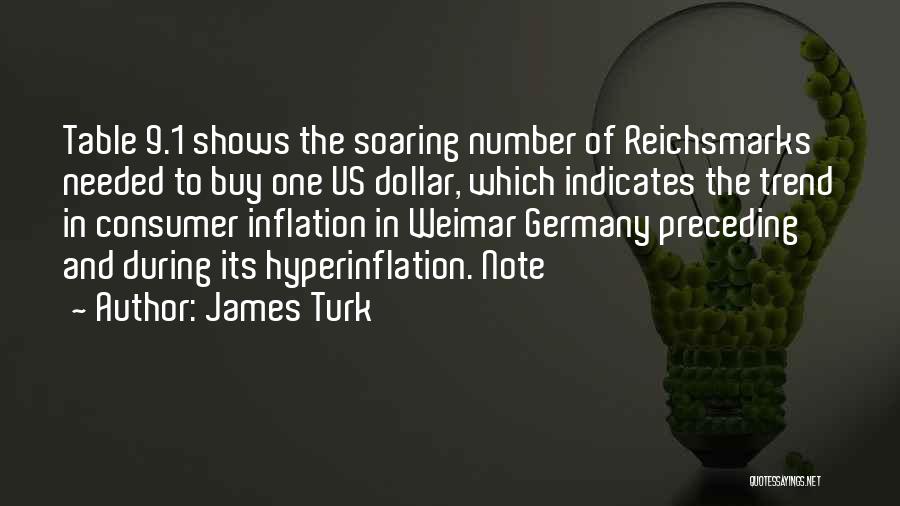
Table 9.1 shows the soaring number of Reichsmarks needed to buy one US dollar, which indicates the trend in consumer inflation in Weimar Germany preceding and during its hyperinflation. Note — James Turk
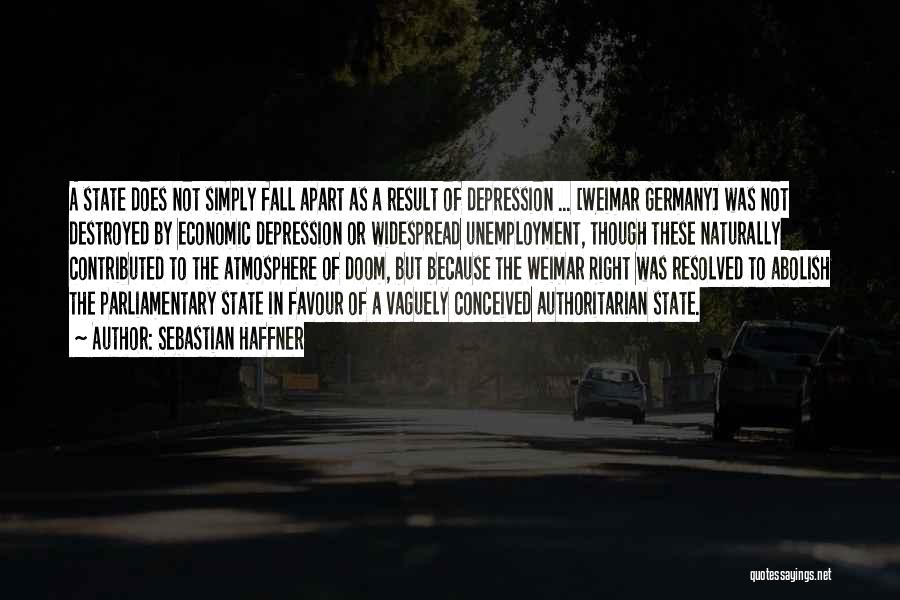
A state does not simply fall apart as a result of depression ... [Weimar Germany] was not destroyed by economic depression or widespread unemployment, though these naturally contributed to the atmosphere of doom, but because the Weimar Right was resolved to abolish the parliamentary state in favour of a vaguely conceived authoritarian state. — Sebastian Haffner
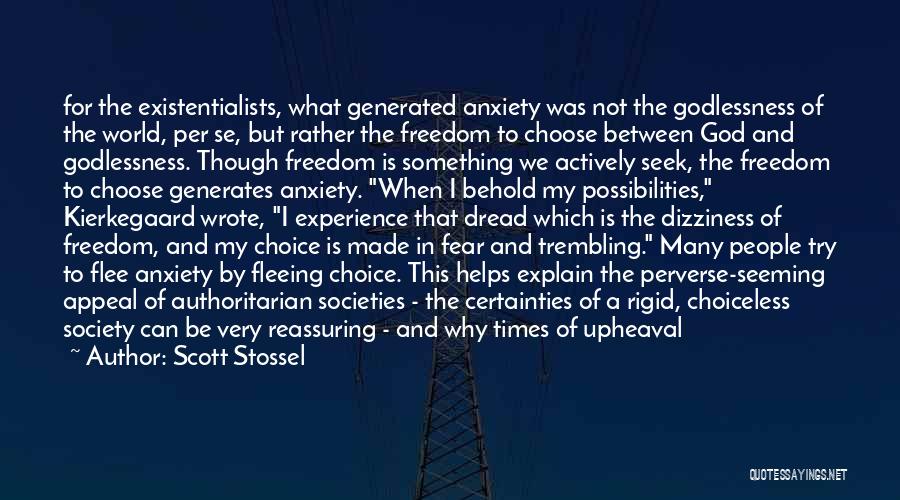
for the existentialists, what generated anxiety was not the godlessness of the world, per se, but rather the freedom to choose between God and godlessness. Though freedom is something we actively seek, the freedom to choose generates anxiety. "When I behold my possibilities," Kierkegaard wrote, "I experience that dread which is the dizziness of freedom, and my choice is made in fear and trembling." Many people try to flee anxiety by fleeing choice. This helps explain the perverse-seeming appeal of authoritarian societies - the certainties of a rigid, choiceless society can be very reassuring - and why times of upheaval so often produce extremist leaders and movements: Hitler in Weimar Germany, Father Coughlin in Depression-era America, or Jean-Marie Le Pen in France and Vladimir Putin in Russia today. But running from anxiety, Kierkegaard believed, was a mistake because anxiety was a "school" that taught people to come to terms with the human condition. — Scott Stossel
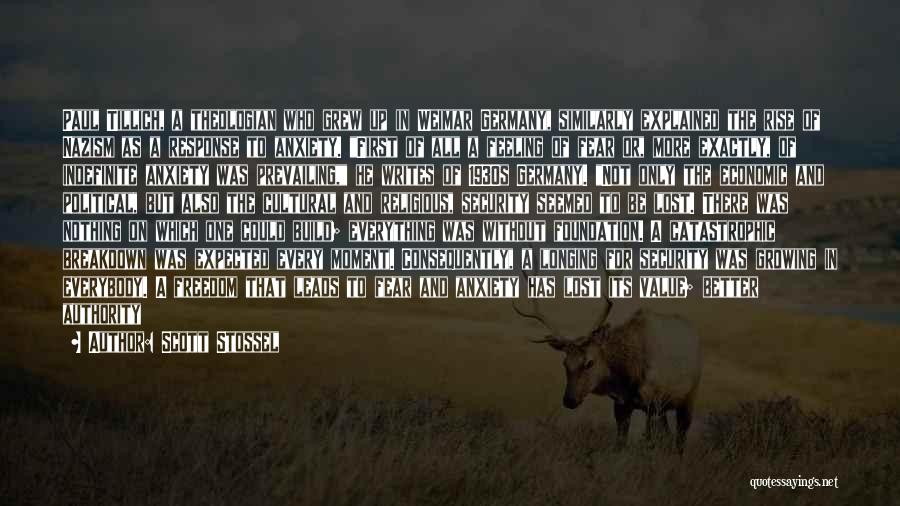
Paul Tillich, a theologian who grew up in Weimar Germany, similarly explained the rise of Nazism as a response to anxiety. "First of all a feeling of fear or, more exactly, of indefinite anxiety was prevailing," he writes of 1930s Germany. "Not only the economic and political, but also the cultural and religious, security seemed to be lost. There was nothing on which one could build; everything was without foundation. A catastrophic breakdown was expected every moment. Consequently, a longing for security was growing in everybody. A freedom that leads to fear and anxiety has lost its value; better authority with security than freedom with fear. — Scott Stossel





